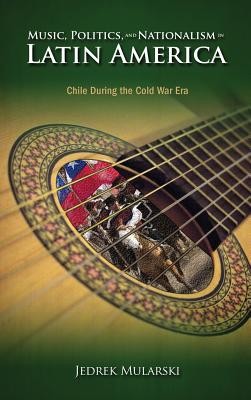
- We will send in 10–14 business days.
- Author: Jedrek Mularski
- Publisher: Cambria Press
- Year: 2014
- Pages: 300
- ISBN-10: 1604978880
- ISBN-13: 9781604978889
- Format: 15.2 x 22.9 x 2.1 cm, kieti viršeliai
- Language: English
- SAVE -10% with code: EXTRA
Music, Politics, and Nationalism In Latin America (e-book) (used book) | bookbook.eu
Reviews
Description
To date, scholars have paid little attention to the role that music played at political rallies and protests, the political activism of right-wing and left-wing musicians, and the emergence of musical performances as sites of verbal and physical confrontations between Allende supporters and the opposition. This book illuminates a largely unexplored facet of the Cold War era in Latin America by examining linkages among music, politics, and the development of extreme political violence. It traces the development of folk-based popular music against the backdrop of Chile's social and political history, explaining how music played a fundamental role in a national conflict that grew out of deep cultural divisions. Through a combination of textual and musical analysis, archival research, and oral histories, Jedrek Mularski demonstrates that Chilean rightists came to embrace a national identity rooted in Chile's central valley and its huaso ("cowboy") traditions, which groups of well-groomed, singing huasos expressed and propagated through música tÃpica. In contrast, leftists came to embrace an identity that drew on musical traditions from Chile's outlying regions and other Latin American countries, which they expressed and propagated through nueva canción. Conflicts over these notions of Chilenidad ("Chileanness") both reflected and contributed to the political polarization of Chilean society, sparking violent confrontations at musical performances and political events during the late 1960s and early 1970s. Mularski offers a powerful example and multifaceted understanding of the fundamental role that music often plays in shaping the contours of political struggles and conflicts throughout the world.This is an important book for Latin American studies, history, musicology/ethnomusicology, and communication.
EXTRA 10 % discount with code: EXTRA
The promotion ends in 21d.04:11:40
The discount code is valid when purchasing from 10 €. Discounts do not stack.
- Author: Jedrek Mularski
- Publisher: Cambria Press
- Year: 2014
- Pages: 300
- ISBN-10: 1604978880
- ISBN-13: 9781604978889
- Format: 15.2 x 22.9 x 2.1 cm, kieti viršeliai
- Language: English English
To date, scholars have paid little attention to the role that music played at political rallies and protests, the political activism of right-wing and left-wing musicians, and the emergence of musical performances as sites of verbal and physical confrontations between Allende supporters and the opposition. This book illuminates a largely unexplored facet of the Cold War era in Latin America by examining linkages among music, politics, and the development of extreme political violence. It traces the development of folk-based popular music against the backdrop of Chile's social and political history, explaining how music played a fundamental role in a national conflict that grew out of deep cultural divisions. Through a combination of textual and musical analysis, archival research, and oral histories, Jedrek Mularski demonstrates that Chilean rightists came to embrace a national identity rooted in Chile's central valley and its huaso ("cowboy") traditions, which groups of well-groomed, singing huasos expressed and propagated through música tÃpica. In contrast, leftists came to embrace an identity that drew on musical traditions from Chile's outlying regions and other Latin American countries, which they expressed and propagated through nueva canción. Conflicts over these notions of Chilenidad ("Chileanness") both reflected and contributed to the political polarization of Chilean society, sparking violent confrontations at musical performances and political events during the late 1960s and early 1970s. Mularski offers a powerful example and multifaceted understanding of the fundamental role that music often plays in shaping the contours of political struggles and conflicts throughout the world.This is an important book for Latin American studies, history, musicology/ethnomusicology, and communication.


Reviews